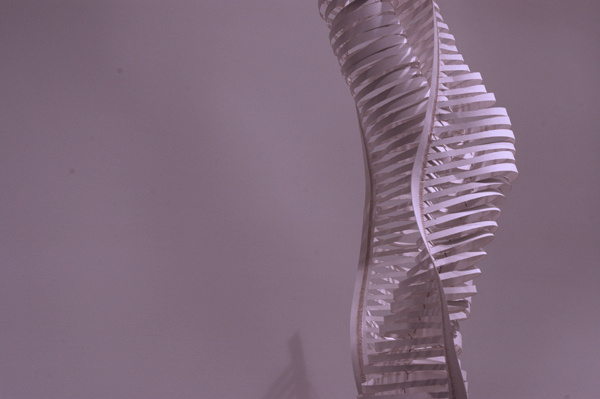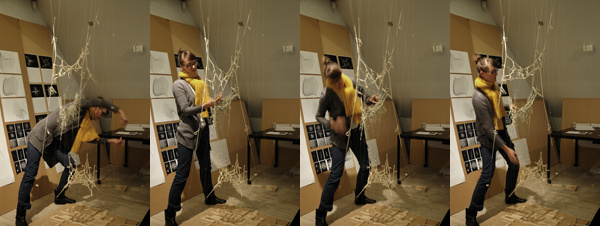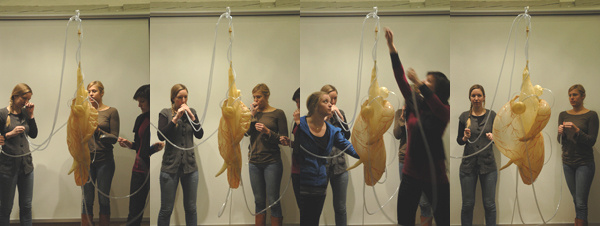Intensive Models (2008)

A workshop collaboration between CITA and Department 2 at the Royal Danish Academy of Fine Arts, School of Architecture, Copenhagen
The workshop introduced a conceptual understanding for design solutions that are created through an interplay of interconnected formgiving members with the aid of physical models and drawings. Contemporary digital design tools are employing parametrically connected relationships for the creation of architectural content that show similar dependencies. The workshop featured international guests Andreas Eggertsen from Snøhetta in Oslo and Bernhard Sommer from Die Angewandte in Vienna.

The seminar will produce a series of conceptual models and diagrams that are constrained through dynamic relationships. The investigation is focused on the creation of form through dependant reactions of a whole networked system. The idea of a preconceived form loses importance instead the investigation on dependant behavior and its potentials functions as a design driver. The workshop presented historical precursors of material related formgiving and investigated mapping techniques that can graphically describe the models behavior.

The workshop presents two projects that employ this design thinking. Bernhard Sommer will show a series of projects that employ the mathematical branch of topology for a design development. His work centers on dynamic aspects of architectural designs realized in a variety of materials with a special focus on pneumatic structures. Andreas Eggertsen will present the Harmonograph Project, a mechanical apparatus that employs pendulums to create 2D and 3D geometries that he developed in partnership with Olafur Eliasson and violinmaker Hans Johannson.

